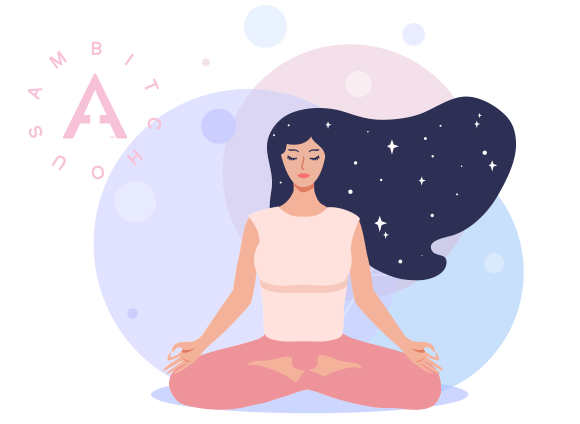MEDITATION IS MAGIC

EMOTIONS
Long-term meditators show increased size in brain regions associated with emotional regulation. “Larger volumes in these regions account for meditators’ singular abilities and habits to cultivate positive emotions, retain emotional stability, and engage in mindful behavior,” according to a UCLA study.
EYES
Decide what you’re going to do with your eyes. If you want the experience to be more body-based, close them. If you want to feel more anchored in the space you’re in, keep them open.
TIME
Meditation isn’t about length; it’s about frequency. In the same way you don’t get strong by lifting one giant weight one time, you should try and sit regularly. Five or ten minutes a day is a great start.
BREATH
Don’t try to “calm your mind.” Instead, appreciate the sensations of your breath in the same way that a wine snob tastes a Cabernet. When your mind starts wandering away into thoughts, just recognize that you’re thinking. Then return to appreciating the sensations of your breath.
ARMS & HANDS
Relax your shoulders and arms, letting your hands rest on your thighs. Alternately, place one hand on another in your lap.
LEGS & FEET
If you’re sitting in a chair, keep your feet flat on the floor and your spine straight. If you’re sitting cross-legged on a cushion, the important thing is to have your knees below your hips. If you need a higher seat, make one.
BENEFITS OF MEDITATION
• Reduces pain and enhances body’s immune system.
• Reduces feelings of depression, anxiety, and anger.
• Helps control thoughts.
• Increases mind focus, brings balanced, rational thought.
• Helps you feel connected with solutions and actions.
• Increases energy.
• Increases blood flow & slows the heart rate.
• Provides a sense of calm, peace, and balance.
• Helps reduce stress.
